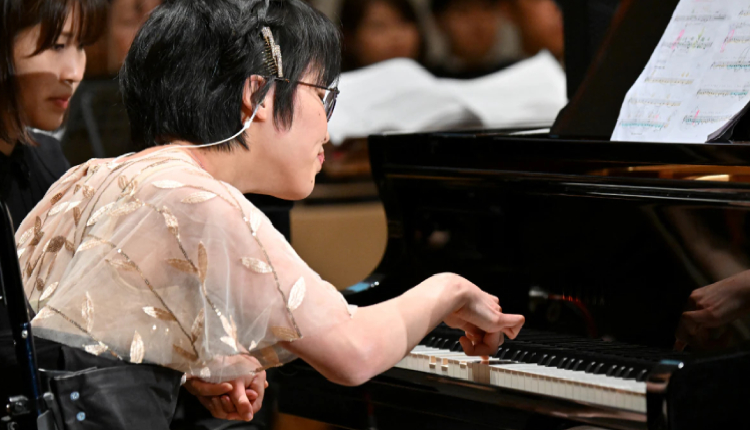AI-assisted piano in Tokyo allows disabled musicians play Beethoven
An AI-assisted piano helped 24-year-old Japanese musician Kiwa Usami play Beethoven’s Ode to Joy in Tokyo on Thursday.
Usami, who has cerebral palsy, was among two other musicians with disabilities to perform Symphony No. 9 with the Yokohama Sinfonietta at Suntory Hall.
The “Anybody’s Piano” helps musicians by tracking the music notes and then augmenting the performance by adding the keys needed but not pressed.
Usami started playing the piano when she was in elementary school and is the inspiration for the AI piano.
The AI piano was created by the Japanese music giant Yamaha in collaboration with her teacher, who saw Usami’s dedication to practising with only one finger.
“It’s a really powerful experience to play with an orchestra,” 10-year-old Yurina Furukawa told AFP.
The “Anybody’s Piano” helped Furukawa perform from a bed in front of the grand piano on the stage.
Furukawa has a rare muscle condition called congenital myopathy which requires breathing assistance.
Unlike other traditional auto-play, this piano stops immediately if a the musician hits the wrong notes.
“When I miss a key or slow down, I feel the pressure from the piano to go on and press the right key,” said performer Hiroko Higashino, 39.
Higashino was born with three fingers on her right hand and only began playing the piano after the “Anybody’s Symphony No. 9” concert programme was announced.
“If the piano helps me and adds two missing keys for me, I can more faithfully recreate the rich harmony, the music that Beethoven intended to express,” she explained.


